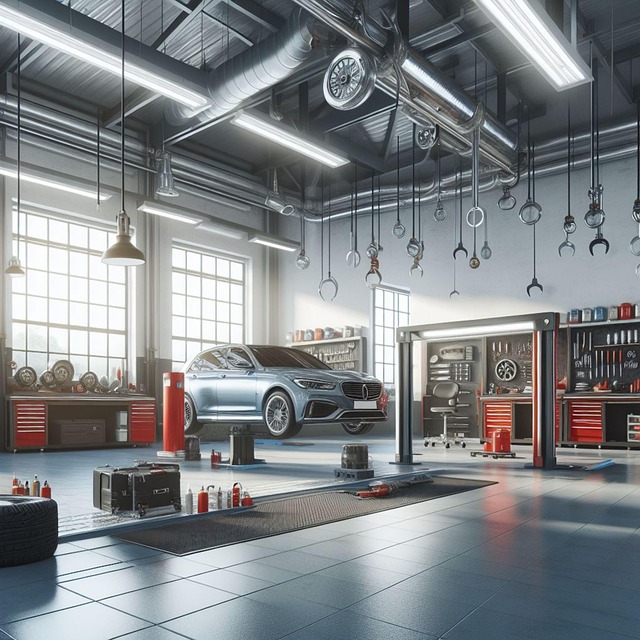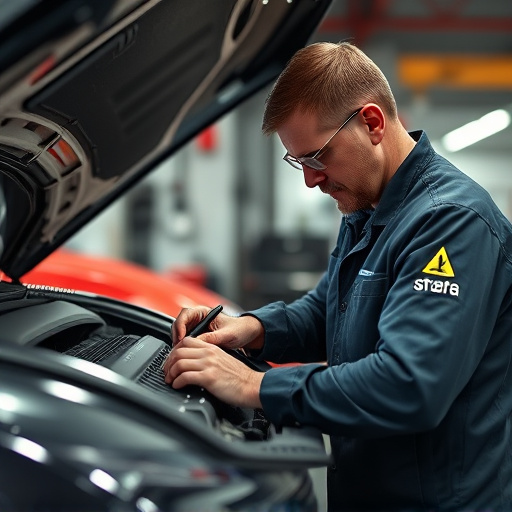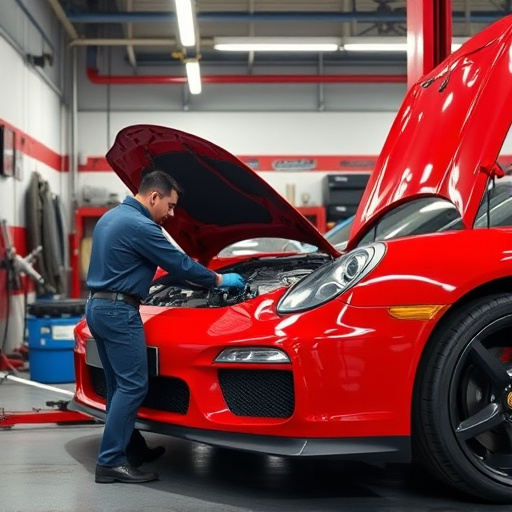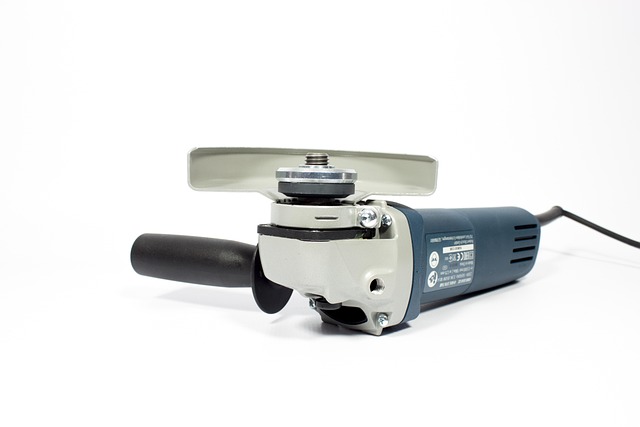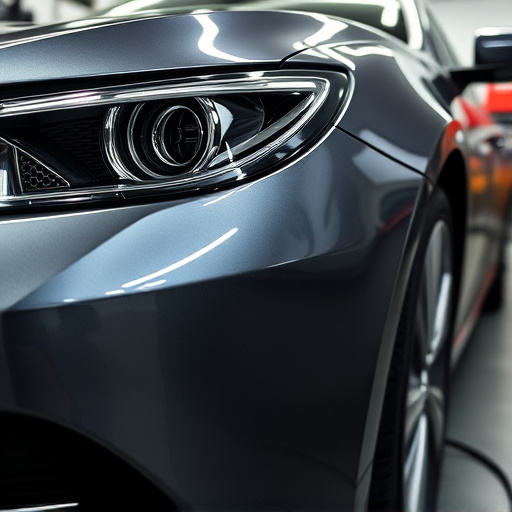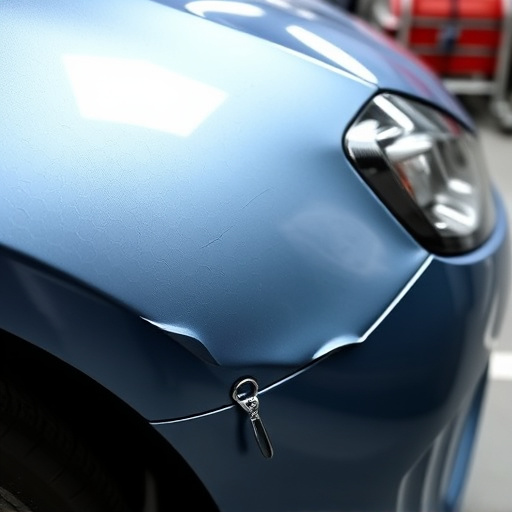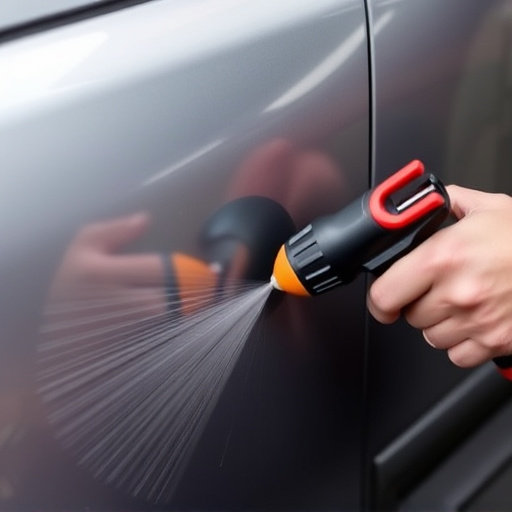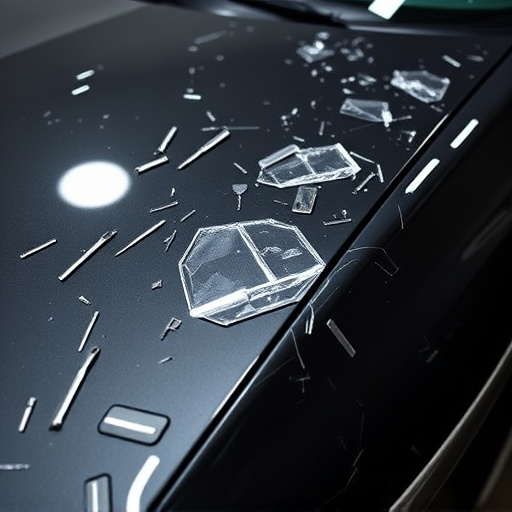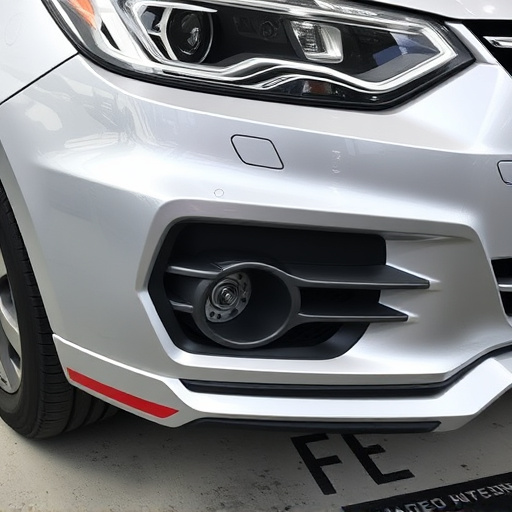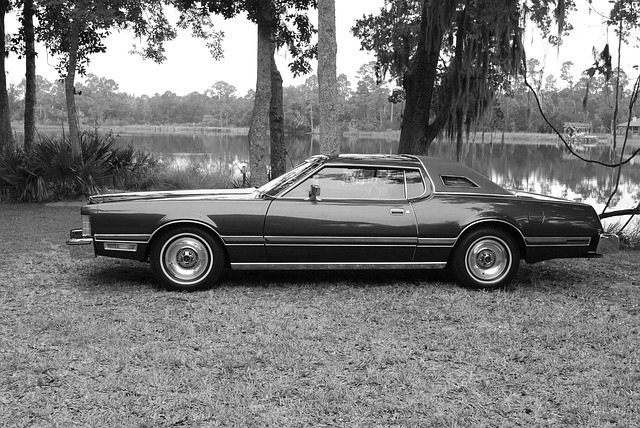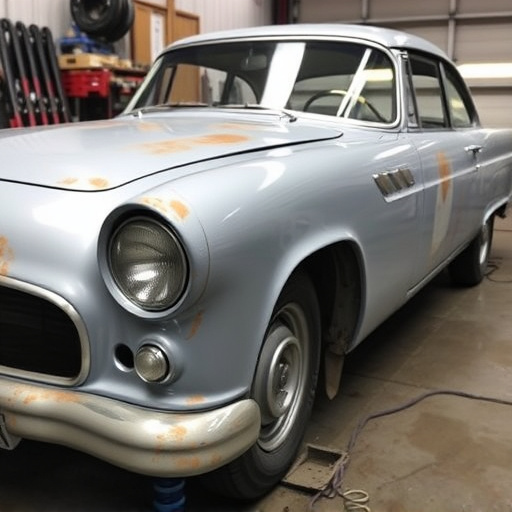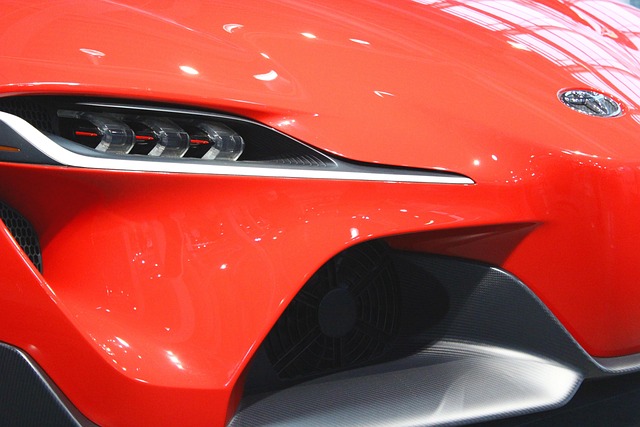Aluminum has revolutionized automotive manufacturing, offering benefits like strength, fuel efficiency, and durability. However, its unique properties pose challenges for auto technicians during repairs, especially in complex car body structures. Effective aluminum repair requires specialized skills, advanced tools, and a deep understanding of the material's behavior to preserve structural integrity and maintain aesthetic appeal. This is crucial for modern fleet repair services and collision repair shops to meet current industry demands, focusing on techniques like paintless dent repair, welding, brazing, and specific coatings to ensure vehicle longevity and fuel efficiency.
In today’s automotive landscape, aluminum is a prevalent material due to its lightweight properties enhancing fuel efficiency. However, this poses challenges for auto technicians in repairing and maintaining aluminum-intensive vehicles. Understanding the unique characteristics of aluminum is crucial. This article delves into the significance of aluminum repair techniques for technicians, exploring how mastering these skills enhances vehicle durability and overall efficiency. Learn about best practices that revolutionize automotive care.
- Understanding Aluminum: Properties and Challenges in Automotive Manufacturing
- The Role of Auto Technicians: Mastering Aluminum Repair Techniques
- Best Practices and Benefits: Enhancing Vehicle Durability and Efficiency Through Effective Aluminum Repairs
Understanding Aluminum: Properties and Challenges in Automotive Manufacturing
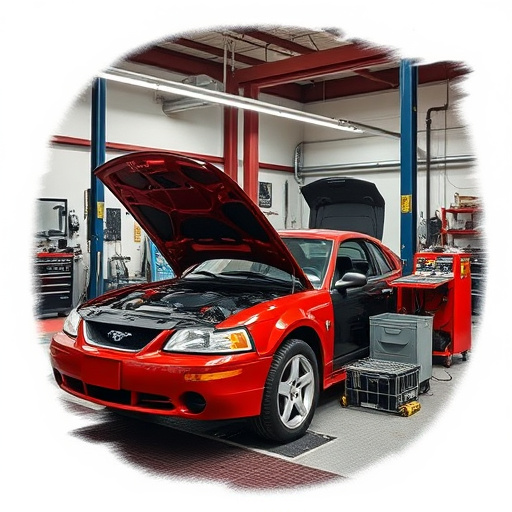
Aluminum has revolutionized automotive manufacturing due to its exceptional properties. It’s lightweight yet incredibly strong, offering significant fuel efficiency gains and improved vehicle performance. Its excellent corrosion resistance ensures longevity, even in harsh environmental conditions. However, working with aluminum presents unique challenges for auto technicians. The material’s softness and tendency to deform under pressure make traditional repair methods often ineffective or damaging. This is particularly true for complex car body structures where precision is key.
Understanding these characteristics underscores the importance of specialized aluminum repair techniques. Auto technicians must be equipped to handle this modern material, ensuring repairs that maintain structural integrity and aesthetic appeal. Proficiency in aluminum repair goes beyond simply fixing dents; it involves understanding the metal’s behavior, employing advanced tools, and mastering precise techniques to meet the demands of today’s fleet repair services and collision repair shops.
The Role of Auto Technicians: Mastering Aluminum Repair Techniques
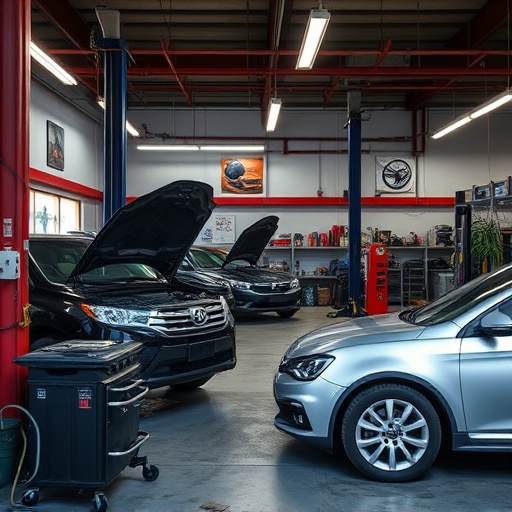
In today’s automotive industry, auto technicians play a pivotal role in ensuring vehicle longevity and safety. With the increasing prevalence of aluminum in car manufacturing, mastering aluminum repair techniques has become an indispensable skill for these professionals. Aluminum is not only lightweight, contributing to fuel efficiency, but also highly resistant to corrosion, making it a preferred material choice for modern vehicles. However, this presents a unique challenge: when damage occurs, traditional repair methods may not be sufficient.
Auto technicians who specialize in aluminum repair are equipped with advanced skills and knowledge to handle these complex tasks. They understand the intricacies of working with aluminum, including its unique properties and challenges. By employing techniques such as paintless dent repair, they can expertly restore damaged aluminum panels without the need for extensive body shop services or collision repair processes. This not only saves time and costs but also ensures minimal impact on the vehicle’s overall structural integrity.
Best Practices and Benefits: Enhancing Vehicle Durability and Efficiency Through Effective Aluminum Repairs
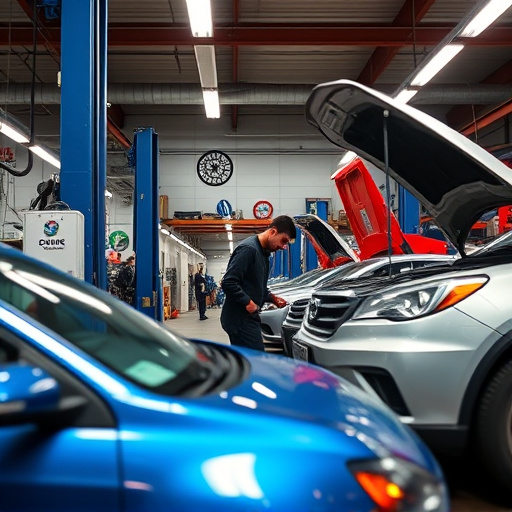
Aluminum repair techniques have become increasingly vital in the automotive industry due to the growing use of aluminum in modern vehicle construction. Best practices for aluminum repairs involve specialized tools and skills, as this lightweight metal requires precise handling to maintain structural integrity. Professional auto technicians are trained to employ advanced techniques such as welding, brazing, and specialized coating methods to effectively repair and restore damaged aluminum components.
By adopting these best practices, automotive body work professionals can significantly enhance vehicle durability and efficiency. Properly executed aluminum repairs ensure that the car’s structure remains intact, reducing the risk of future damage. Moreover, effective aluminum repair techniques contribute to improved fuel efficiency by preserving the overall lightweight design of modern vehicles. This not only benefits the environment but also saves owners money in terms of fuel costs over time, making auto collision centers more appealing destinations for car damage repair enthusiasts seeking top-notch service.
Aluminum repair techniques have become indispensable skills for auto technicians in today’s automotive landscape. As aluminum continues to play a significant role in vehicle manufacturing, ensuring proper repair methods is crucial for maintaining durability and efficiency. By mastering these techniques, technicians can contribute to the overall quality and longevity of aluminum-based vehicles, addressing potential challenges while embracing the future of car craftsmanship.
